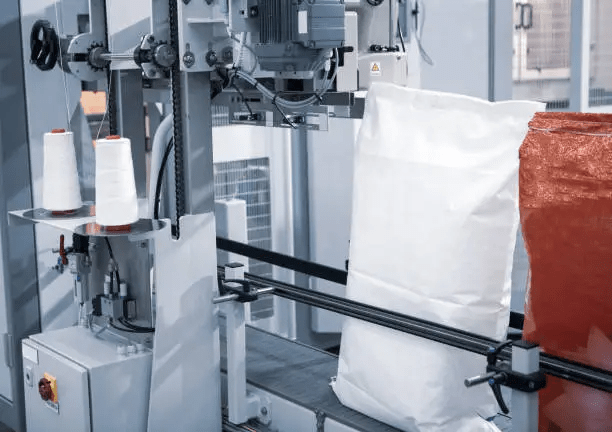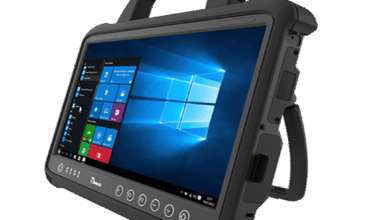Improving the efficiency of industrial packaging with bag making machines

In order to remain competitive as B2B players in various industries, businesses are now focusing on grey market efficiency and innovative practices. One area that greatly impacts logistics, retail packing as well as food safety is the plastic bag, which is used as an integral part of packaging. A business that focuses on bulk production of qualitative plastic bags has to employ sophisticated technologies like Plastic Bag Making Machines.
These machines provide automated scalable solutions that result in the reduction of manual labor, maximum accuracy, minimization of waste and utmost precision during output. For industrial purposes with greater efficiency, visit this link. KTETGROUP offers a wide variety of versatile and high-performance output plastic bag making machines.
What are Plastic Bag Making Machines
Plastic bag making machines are specialized machines that transform film rolls of plastic like LDPE and HDPE into bags using feeding, sealing, cutting and printing automation. This enables the mass production of bags to be done with utmost speed while maintaining the consistency of the size and strength of the bags.
These machines are essential for firms operating in B2B sectors such as:
- Retail and Wholesale Packaging
- Storage of Agricultural Products
- Food and Drinks Industry
- Sales of Pharmaceuticals
- Textiles and Clothing
Depending on the model of the machine and the setting, businesses can manufacture various types of plastic bags including flat bags, T-shirt bags, side seal bags, bottom seal bags, and gusseted bags.
Distinctions Between Plastic Bag Making Machines
Distinct industries demand different types, dimensions and specifications of bags. Here are the primary types of machines used to make plastic bags designed for various business requirements:
Bottom Seal Bag Machines
Designated for making bottom sealed bags, these machines are best suited where the contents are heavier. Bottom Seal Bag Machines are typically employed for trash bags, food bags, and industrial supply bags.
Side Seal Bag Machines
Preferred in retail and promotional applications, Side Seal Bag Machines are extensively used for light to medium-duty packaging. Besides making neat and strong side seals, these machines commonly handle cutting mechanisms.
T-shirt Bag Making Machines
These bags, usually seen in supermarkets and other retail outlets, got their name from their handles. A lot of the time, these machines come with automatic punching units that make the handles during production.
Zipper Bag Machines
Zipper bag machines are more sophisticated and are used to make resealable bags such as those used in food packaging, electronics, and even in the medical field. Precise heat sealing and alignment must be achieved.
Multi-lane Bag Machines
These are more sophisticated systems designed for bulk production; they are capable of producing several bags at the same time. The machines work best in central facilities that wish to increase their output without increasing the physical size of the machines.
KTETGROUP has flexible models that meet all of these production needs which helps businesses increase their operations without compromising quality and speed.
Reasons for Choosing Plastic Bag Making Machines for B2B Companies
For B2B manufacturers, importers, and packing companies have to be strategically thoughtful when choosing equipment as it is often a long-term investment decision. The business gains numerous operational benefits from the investment that impacts the profitability.
Enhanced Efficiency of Production
Such machines in most cases can be operated continuously at high speeds resulting in increased output. In other cases the machines can be set to function with hundreds of cycles per minute which translates to reduced lead time as well as output on a broader scale.
Consistent Quality Control
The logic in most of the machines is programmable making it easy to automate operation and remove sizes, thickness, or the sealing standards with changed the machines offering. Standardized performance enables them to manage better downstream packages and the transport.
Lowering Costs Associated With Labor
The process of producing bags is made much easier with the employment of robots, as machines enable the elimination of physically taxing clerical tasks. Furthermore, because safety and precision are enhanced, personnel can be reallocated to more important positions.
Material Optimization
Remote control systems for motors that tighten controllable loops automates tension control and optimization of raw materials. In addition to cutting costs, sustainable business practices are advanced by these improvements.
Relationship With Other Systems
Printing units, die cutters, and other inspection units can all be integrated into one modern machine which can enhance the production flow of the entire system.
Important Aspects When Selecting A Plastic Bag Maker Machine
Choosing the appropriate equipment entails a number of other technical and operational aspects. To select their preferred machine, businesses should focus on the following features.
Machine Versatility
Check all bag formats and plastic film types supported. Above everything is the ability to change between SKUs faster, with fewer delays, resulting in greater operational speed.
Output Capacity
Adjust production productivity according to anticipated demand spikes, and estimate it with reasonable benchmarks for predicting trends to ensure there are no gaps in the set capacity.
Maintenance and Servicing
Cleaning and upkeep of the machinery should take little effort and not be a cumbersome task. Machinery vendors should be selected that guarantee continued technical attention, inventories of replacement parts, and other services after purchase.
User Interface and Automation
Target machines that contain user-friendly HMI automation panels and real-time diagnostic features. These traits make operations easier and lessens the training burden.
Compliance and Certifications
All machines must meet pertinent industry and ecological certifications, especially when dealing with bags for food, pharmaceutical, or export markets.
Emerging Trends in Plastic Bag Manufacturing Technology
The technological gap in plastic bag manufacturing continues to widen due to modernization, the need for global sustainability, and upward shifts in standard requirements. Below are some of the emerging trends plastic bag manufacturing is experiencing:
Sustainable Material Support
Manufacturers are now being more responsible by designing machines that can support the use of biodegradable and recycled plastics.
Energy-Efficient Systems
Electric servo motors, regenerative drives, and improved insulation are making machines more energy efficient.
Smart Factory Integration
Predictive maintenance, cloud-based analytics, remote troubleshooting, IoT-enabled machines, and real time performance tracking are improving overall uptime and performance measurables.
Compact and Modular Design
Floor space and CAPEX costs are reduced because new space-saving machines with modular attachments enable businesses to incrementally expand their capabilities.
Real-Time Quality Control
Process and production waste is significantly reduced by immediate defect correction through integrated sensors and vision systems that allow detection during production.
Conclusion
To wrap things up, the efficiency and competitive edge of bag-plastic producing businesses will greatly be influenced by operational cost and product quality, which can be controlled by purchasing a suitable plastic bag making machine. For B2B companies that operate in an volatile and high-paced environment, acquiring the right machine should be key.
KTETGROUP is known for versatile industrial bag making machinery that are modular, well built, and easily customizable. With their strong engineering and unparalleled customer service, KTETGROUP enables businesses around the globe to improve their packaging production processes and compete in a rapidly changing environment.



